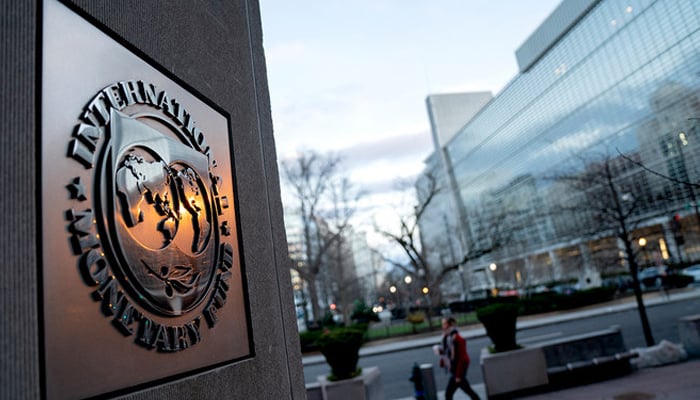IMF doesn’t endorse tariff rationalisation for industry
In power sector, IMF has conveyed to Pakistan side that circular debt management plan was not in line with Fund’s programme
ISLAMABAD: The International Monetary Fund (IMF) has refused to endorse tariff rationalisation for the industrial sector and curtailing the circular debt of the cash-bleeding energy sector and argued that the plan possessed fiscal risk instead of tackling underlying persistent problems.
There is another risk that the Fund might raise objections over the unbundling of PIA as well because the settlement of Rs260 billion would have a cost of Rs32 billion on a per annum basis and there might be Rs16 billion cost attached to restructuring of domestic debt. The IMF has not granted its assent over the settlement of PIA’s domestic loans keeping in view its attached fiscal cost.
In the power sector, the IMF has conveyed to the Pakistan side that the circular debt management plan was not in line with the Fund’s programme. It is essential for the government to focus on broad-based reforms, including reducing the high cost of energy, improving compliance and reducing theft and line losses, ending captive power, and fixing the governance and management of the Discos, as well as keeping up with regular tariff adjustments, added the IMF.
A top official, who was involved in parleys with the IMF, told this scribe that Pakistan utilised the dividends of companies as a source for the settlement of circular debt of the energy sector in the past.
Citing an example, he said that when the PMLN-led government came into power then they settled Rs480 billion circular debt of the power sector but this was done just ahead of joining the IMF programme. When there will be any fiscal cost attached with the clearing of CD plan the IMF would raise objections over it and same was happened in this case.
The IMF asks for tackling the underlying structural problems such as improving energy mix, curtailing leakages and improving collection of bills as well as rationalising tariff in line with recovering the cost of energy in order to make this sector sustainable.
-
 South Korea: Two Killed As Military Helicopter Crashes During Training
South Korea: Two Killed As Military Helicopter Crashes During Training -
 Elon Musk Unveils SpaceX’s Moon-first Strategy With ‘self Growing Lunar City’
Elon Musk Unveils SpaceX’s Moon-first Strategy With ‘self Growing Lunar City’ -
 Donald Trump Slams Bad Bunny's Super Bowl Performance: 'Absolutely Terrible'
Donald Trump Slams Bad Bunny's Super Bowl Performance: 'Absolutely Terrible' -
 Jake Paul Criticizes Bad Bunny's Super Bowl LX Halftime Show: 'Fake American'
Jake Paul Criticizes Bad Bunny's Super Bowl LX Halftime Show: 'Fake American' -
 Prince William Wants Uncle Andrew In Front Of Police: What To Expect Of Future King
Prince William Wants Uncle Andrew In Front Of Police: What To Expect Of Future King -
 Antioxidants Found To Be Protective Agents Against Cognitive Decline
Antioxidants Found To Be Protective Agents Against Cognitive Decline -
 Hong Kong Court Sentences Media Tycoon Jimmy Lai To 20-years: Full List Of Charges Explained
Hong Kong Court Sentences Media Tycoon Jimmy Lai To 20-years: Full List Of Charges Explained -
 Coffee Reduces Cancer Risk, Research Suggests
Coffee Reduces Cancer Risk, Research Suggests -
 Katie Price Defends Marriage To Lee Andrews After Receiving Multiple Warnings
Katie Price Defends Marriage To Lee Andrews After Receiving Multiple Warnings -
 Seahawks Super Bowl Victory Parade 2026: Schedule, Route & Seattle Celebration Plans
Seahawks Super Bowl Victory Parade 2026: Schedule, Route & Seattle Celebration Plans -
 Keto Diet Emerges As Key To Alzheimer's Cure
Keto Diet Emerges As Key To Alzheimer's Cure -
 Chris Brown Reacts To Bad Bunny's Super Bowl LX Halftime Performance
Chris Brown Reacts To Bad Bunny's Super Bowl LX Halftime Performance -
 Trump Passes Verdict On Bad Bunny’s Super Bowl Halftime Show
Trump Passes Verdict On Bad Bunny’s Super Bowl Halftime Show -
 Super Bowl 2026 Live: Seahawks Defeat Patriots 29-13 To Win Super Bowl LX
Super Bowl 2026 Live: Seahawks Defeat Patriots 29-13 To Win Super Bowl LX -
 Kim Kardashian And Lewis Hamilton Make First Public Appearance As A Couple At Super Bowl 2026
Kim Kardashian And Lewis Hamilton Make First Public Appearance As A Couple At Super Bowl 2026 -
 Romeo And Cruz Beckham Subtly Roast Brooklyn With New Family Tattoos
Romeo And Cruz Beckham Subtly Roast Brooklyn With New Family Tattoos




